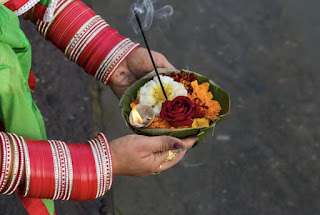Why is Prayer Important in Hinduism?
Hinduism is a rich and diverse religion that encompasses a wide range of beliefs, practices, and rituals. Central to Hinduism is the concept of prayer, which holds great significance in the lives of its followers. Prayer serves as a means of connecting with the divine, seeking guidance, expressing gratitude, and fostering spiritual growth. In this article, we will explore the importance of prayer in Hinduism and its various aspects.
Communication with the Divine
Prayer is a fundamental way for Hindus to establish a direct line of communication with the divine. It allows individuals to express their devotion, seek blessings, and establish a personal connection with the deities. Through prayer, Hindus can cultivate a sense of intimacy and closeness with the divine presence.
Spiritual Connection and Inner Harmony
Prayer in Hinduism is not merely a request for material desires but a means of attaining spiritual fulfillment. It helps individuals connect with their inner selves, creating a sense of peace, tranquility, and harmony. Prayer serves as a way to quiet the mind, reflect on one's actions, and seek spiritual enlightenment.
Expressing Gratitude
Gratitude is an essential aspect of Hinduism, and prayer provides a platform for expressing gratitude towards the divine for blessings, protection, and the abundance in one's life. Hindus believe that acknowledging and appreciating the divine grace fosters a positive mindset and attracts further blessings.
Seeking Guidance and Protection
Prayer acts as a means of seeking guidance and protection from the deities. Hindus often pray for wisdom, strength, and guidance to navigate life's challenges. They believe that the deities possess immense knowledge and can offer guidance in making important decisions and overcoming obstacles.
Ritualistic and Devotional Practices
Prayer is intricately woven into the fabric of Hindu rituals and devotional practices. It is performed during religious ceremonies, daily worship, and special occasions. Whether through chanting mantras, reciting sacred texts, or offering prayers at temples, these rituals serve as a way to honor and connect with the divine.
Self-Reflection and Self-Realization
Prayer provides an opportunity for self-reflection and introspection. Hindus believe that through prayer, they can delve into their inner selves, contemplate their actions, and strive for self-improvement. Prayer serves as a reminder to assess one's thoughts, words, and deeds, leading to personal growth and spiritual evolution.
Building Community and Unity
Prayer plays a vital role in fostering community and unity among Hindus. Group prayers, congregational worship, and religious festivals bring individuals together, strengthening social bonds and creating a sense of shared devotion. The collective energy of prayer amplifies the spiritual experience and deepens the sense of belonging.
Surrender and Detachment
Prayer in Hinduism encourages the practice of surrender and detachment. By offering prayers, individuals learn to let go of their egos, desires, and attachments, recognizing the ultimate power of the divine. This surrender allows them to cultivate a sense of acceptance, trust, and inner peace.
Prayer holds great significance in Hinduism, serving as a vital tool for spiritual connection, self-reflection, and communion with the divine. It is a means of seeking guidance, expressing gratitude, and fostering a deeper understanding of oneself and the universe. Through prayer, Hindus establish a personal relationship with the deities, seek blessings, and nurture their spiritual growth. The power of prayer lies in its ability to inspire devotion, create inner harmony, and foster a sense of unity within the Hindu community.



Comments